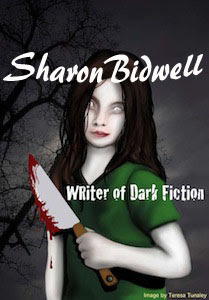Always submit your work according to the agent's, or publisher's guidelines. If the guidelines do not state a preferred layout, then submit the manuscript as close to Standard Manuscript Format as you can. Most agents and publishers will specify what portion of your work they wish to see. Don't send more than they ask for.
If they say they'll accept email submissions (more common these days than when I first wrote anything), present it neatly according to their specifications if they have listed them, and pay attention to whether they want the story or excerpt in the email or as an attachment, and if so, what format.
If posting the manuscript, make sure you keep a copy. Although less common these days in a digital world, there are still instances where people either send their only copy or don't back up the one they have and lose their work entirely. If posting a printed copy, make it clear whether the agent/publisher should return the MS and enclose sufficient postage and packaging. This can prove expensive, and not all publishers will have a return service. It's often easier and cheaper to state they may destroy the submission. In either case (digital or hard copy), most will initially only want the complete work if it is a short story. For a novella or novel, they are more likely to request an excerpt and will specify what portions they wish to see. It's easier just to reprint this for another publisher, with the bonus that each recipient sees a fresh copy, rather than something that grows ever more tatty as it goes back and forth in the postal system.
Take care with the choice of packaging. Don't make it difficult to open. Take care of your presentation, and I don't simply mean the submission layout but everything related to the work. Some writers believe that if their work is good enough, they can get away with anything, but this simply isn't the case. Badly presented work often gets deleted or sent on its way to the shredder and/or recycling plant without so much as a glance. Work as hard on your blurb, synopsis, and cover letter as you would a story. Keep the cover letter concise. Perfect it. I'm not going into detail here (and I'm still constantly learning how to work on pitches), but look up the term 'elevator pitch' to help in constructing these things. Don't submit before you are sure the work is ready. Don't think any editing details don't matter because you and an editor can work on any errors later. You'll be lucky to send in work without at least an occasional typo, but pay attention to things like story structure, spelling, punctuation. Recheck your first page. Does your opening sentence grab attention? Do the first three pages hook you into reading more? Check the ending. Even at this late stage, it's not too late to double check. If you've taken a break from the story, even it was only to work on the submission format and cover letter, etc., you'll likely look at your work with a fresh eye.
Though I've said previously to go to some pains to address to an editor (at a push Dear Editor is fine, though it's preferable to address the work personally), there's a good chance an editor is not the first person who will see your submission. It will go to a slush reader. According to the dictionary, a slush pile is a set of unsolicited queries or manuscripts sent to publishers or by authors or representative agents who are unfamiliar to the publisher. It is these readers' responsibilities to sifting through these submissions. They will select those worthy of further consideration and often have to summarise the story in two or three sentences. Try to do everything to make this easy for them.


No comments:
Post a Comment